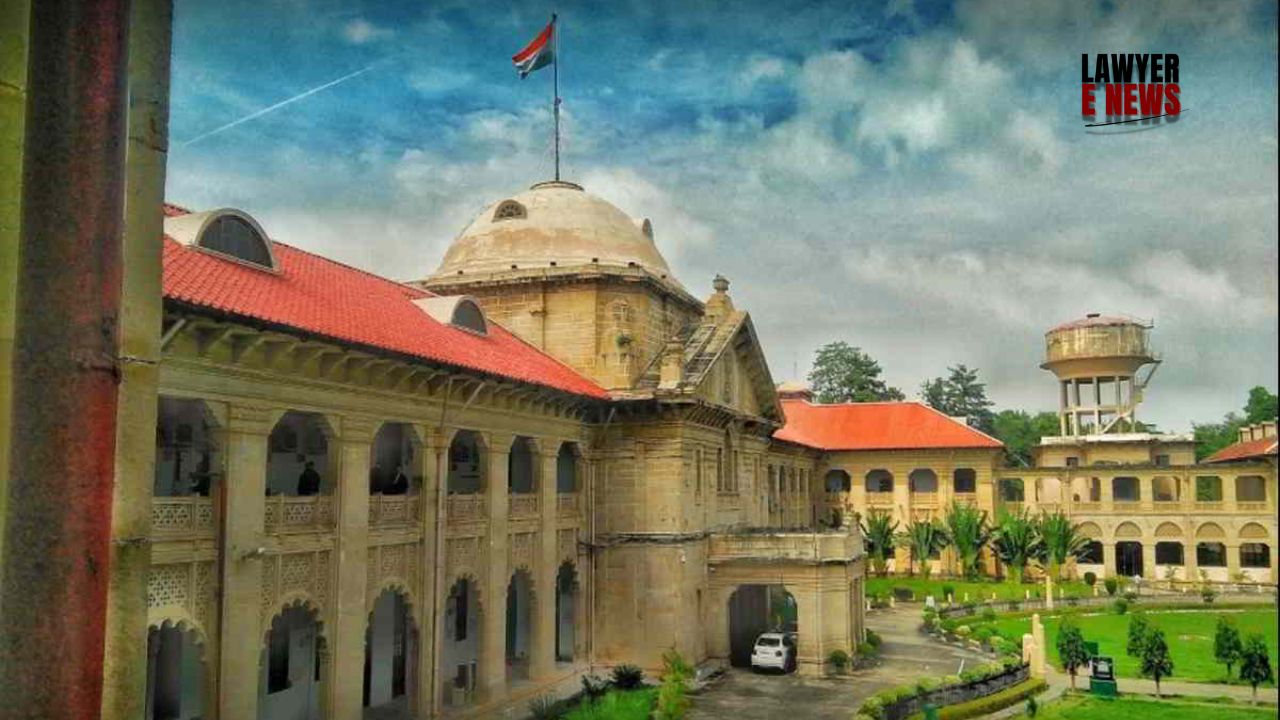-
by Admin
15 February 2026 2:16 AM



Allahabad High Court has acquitted three appellants, Sheoram Singh, Shiv Singh, and Ompal Singh, in a decades-old murder case. The judgment, delivered by a bench comprising Justices Siddhartha Varma and R.M.N. Mishra, set aside the 1986 trial court verdict which had convicted the appellants under Section 302 read with Section 149 of the Indian Penal Code (IPC) for life imprisonment. The court concluded that the prosecution's case was weakened by contradictions in witness statements and the failure to establish a common object among the accused under Section 149 IPC.
Facts of the Case: The case stemmed from a murder that occurred on May 6, 1983, in Fatehpur district, Uttar Pradesh. The deceased, Gopi Krishna Gupta, was shot at his shop by Gorelal, the principal accused, with other individuals allegedly involved in the shooting. A First Information Report (FIR) was filed by Pramod Kumar Gupta, the deceased’s son, shortly after the incident. The trial court convicted six individuals under Section 302 read with 149 IPC. However, during the appeal, the convictions of Gorelal and others abated due to their deaths, leaving three appellants to challenge their conviction.
The High Court found that the prosecution had failed to prove its case beyond reasonable doubt, particularly due to inconsistencies in the evidence. A key factor that weakened the case was the dying declaration of Gopi Krishna Gupta, which named only Gorelal as the assailant. The declaration, recorded by Dr. S.N. Tripathi, was not presented by the prosecution but was later produced by the defense. In the dying declaration, the deceased mentioned that Gorelal had fired at him and clarified that there was no personal enmity between them.
“The prosecution case becomes weak when one looks into the dying declaration... It appears that P.W.-1 was inimical to the other co-accused persons, and therefore, while lodging the FIR, he had mentioned their names,” the court observed.
The court was particularly critical of the discrepancies in the statements of Pramod Kumar Gupta (P.W.-1), the key witness. In his FIR, Gupta stated that the accused fired multiple shots, but the post-mortem report indicated only three gunshot injuries of uniform size, suggesting that only one firearm had been used. The court found this at odds with the claim that multiple individuals had shot at the victim.
Moreover, the testimony of P.W.-2, Somdutt, was found unreliable. He was a chance witness, having allegedly been informed by his wife to go to the police station, which raised doubts about his presence at the scene. Additionally, none of the other eyewitnesses mentioned in P.W.-1’s testimony, such as Smt. Ram Kumari and Om Prakash Goswami, were produced in court, further casting doubt on the prosecution's version of events.
A key issue in the appeal was whether Section 149 IPC, which deals with unlawful assembly and common object, applied to the accused. The court found no evidence of a "common object" that could implicate the other co-accused along with Gorelal. Citing the Supreme Court’s ruling in Vinubhai Ranchhodbhai Patel vs. Rajivbhai Dudabhai Patel, the bench highlighted the necessity of establishing a shared intention among the accused to justify conviction under Section 149.
"The identification of common object is essential, and when the common object is not identified, the accused cannot be convicted under Section 149 IPC," the court stated. It concluded that the other accused had been implicated without sufficient evidence of their involvement in the crime.
Justice Siddhartha Varma remarked, “The names of the other co-accused, which never found place in the dying declaration, were mentioned by P.W.-1 only to settle scores with them... The contradictions were such that the statements of the various prosecution witnesses become highly unreliable.”
The Allahabad High Court's decision to acquit Sheoram Singh, Shiv Singh, and Ompal Singh brings an end to a protracted legal battle that spanned over 40 years. The judgment underscores the importance of consistent witness testimony and concrete evidence in securing convictions under Section 149 IPC. It also highlights the judicial system's ongoing struggle with cases involving hostile or unreliable witnesses. The acquittal is likely to set a precedent in how courts evaluate dying declarations and the application of common object in criminal cases.
Date of Decision: September 4, 2024.
Gorelal Alias Shyam Narain And Others v. State of U.P.
